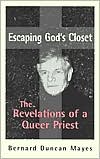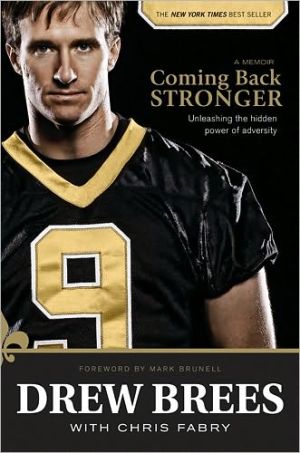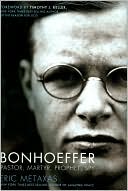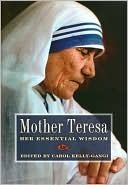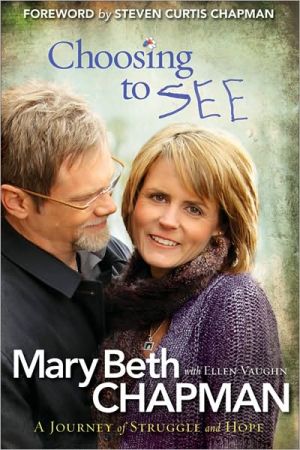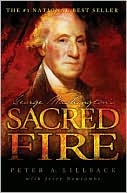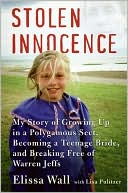Escaping God's Closet: The Revelations of a Queer Priest
He survived a turbulent childhood in war-torn London, earned degrees with honors from Cambridge University, was ordained in the Church of England, became an Anglican worker-priest, and emigrated to the United States.\ He has been a prolific broadcaster for the BBC, helped organize the Public Broadcasting System in America, was a founding chairman of National Public Radio, and became a senior management consultant for the Corporation for Public Broadcasting.\ He designed and directed the first...
Search in google:
He survived a turbulent childhood in war-torn London, earned degrees with honors from Cambridge University, was ordained in the Church of England, became an Anglican worker-priest, and emigrated to the United States.He has been a prolific broadcaster for the BBC, helped organize the Public Broadcasting System in America, was a founding chairman of National Public Radio, and became a senior management consultant for the Corporation for Public Broadcasting.He designed and directed the first system of suicide and crisis counseling centers in California (a model for later centers nationwide) and helped found the Parsonage, an Episcopalian ministry on behalf of gay rights in the Castro section of San Francisco. And all the while, Bernard Duncan Mayes struggled to reconcile his views on sexuality—and his experience as a gay man—with his theological and cultural beliefs. In an entirely honest and engaging voice, Mayes offers considerably more than autobiographical recollections of his life as priest, journalist, university teacher and administrator, and gay rights activist. Throughout Escaping God's Closet, Bernard Mayes recounts how social and doctrinal oppression posed fundamental challenges to his own belief system, but led him to revelations about sexuality, Christianity, and the nature of human existence itself. Publishers Weekly Halfway through his memoir, Mayes picks up a young man on the street in San Francisco and only barely escapes being murdered: "I did not thank God. His role in this was clearly ambivalent and my rage grew. Why should natural acts of flirting and sexual ecstasy... always be under the threat of violent death?" But the occasional homophobic violence Mayes encountered in his quest for a life that fulfilled his spiritual and erotic needs is small measure next to his growth as a person and in his ministry. Born in Britain in 1929 and drafted into the army at age 20, Mayes studied to be an Anglo-Catholic priest although he knew he was attracted to men. Committed to social justice work and a member of the worker-priest movement, he also began writing for the BBC as a religious and social commentator. After being offered a job with the celebrated Judson Church in Greenwich Village in 1958, Mayes relocated and within two years moved again to San Francisco, where in 1961 he created the first suicide hotline in the United States, and where he continues to be a BBC commentator on U.S. culture. San Francisco also offered a whole new sexual world. Mayes writes movingly of his erotic adventures at the baths, of the S&M and drag cultures and of his newly forming theology of sexuality: "The principle of unity is no where better expressed than in passions of sexual intercourse." Honest, forthright and written with a literary bent that does not sidestep the more difficult questions of sexuality, theology, sin and personal redemption, Mayes's memoir is an important addition to the literature of gay liberation and religion as well as frank look into contemporary San Francisco's gay history and mores. (Mar.) Copyright 2001 Cahners Business Information.
AcknowledgmentsixGhosts (1929-1938)1The Pit (1939)12The Cook (1948-1950)26Love's Slave (1952-1954)37The Body (1954)46Mass Magic (1956-1958)58The Box (1958)77The Village (1958-1959)86He-Men (1959)101Help! (1961-1968)121The Cauldron (1961-1970)150Watershed (1964-1968)171The Lyceum (1967-1972)180Chemistry (1968-1976)201Confrontation (1970-1980)211To Be! (1971-1983)221Catastrophe (1979)237The Drawing Board (1984-1998)247The March (1987)261The Soup (1999)274Index293
\ Richard DellamoraBernard Mayes has led an unusual and exemplary life: He is part of the first generation of men who have used the means of civil society to affirm the validity of sexual desires, practices, and relationships between men, and on this topic he is thoughtful, eloquent, and at times very moving.\ \ \ \ \ \ John FoutThis is a fascinating account of a cleric's serious re-examination of the beliefs with which he grew up and how, in the course of his complex and fascinating life, he came to challenge those views and eventually discard them.\ \ \ \ Publishers WeeklyHalfway through his memoir, Mayes picks up a young man on the street in San Francisco and only barely escapes being murdered: "I did not thank God. His role in this was clearly ambivalent and my rage grew. Why should natural acts of flirting and sexual ecstasy... always be under the threat of violent death?" But the occasional homophobic violence Mayes encountered in his quest for a life that fulfilled his spiritual and erotic needs is small measure next to his growth as a person and in his ministry. Born in Britain in 1929 and drafted into the army at age 20, Mayes studied to be an Anglo-Catholic priest although he knew he was attracted to men. Committed to social justice work and a member of the worker-priest movement, he also began writing for the BBC as a religious and social commentator. After being offered a job with the celebrated Judson Church in Greenwich Village in 1958, Mayes relocated and within two years moved again to San Francisco, where in 1961 he created the first suicide hotline in the United States, and where he continues to be a BBC commentator on U.S. culture. San Francisco also offered a whole new sexual world. Mayes writes movingly of his erotic adventures at the baths, of the S&M and drag cultures and of his newly forming theology of sexuality: "The principle of unity is no where better expressed than in passions of sexual intercourse." Honest, forthright and written with a literary bent that does not sidestep the more difficult questions of sexuality, theology, sin and personal redemption, Mayes's memoir is an important addition to the literature of gay liberation and religion as well as frank look into contemporary San Francisco's gay history and mores. (Mar.) Copyright 2001 Cahners Business Information.\ \ \ \ \ BooknewsLondon-born Mayes recounts his life as an Anglican priest, journalist, university teacher and administrator, and gay rights activist. In particular he describes how social and doctrinal oppression posed fundamental challenges to his own belief system, but led him to revelations about sexuality, Christianity, and the nature of human existence itself. Annotation c. Book News, Inc., Portland, OR (booknews.com)\ \
